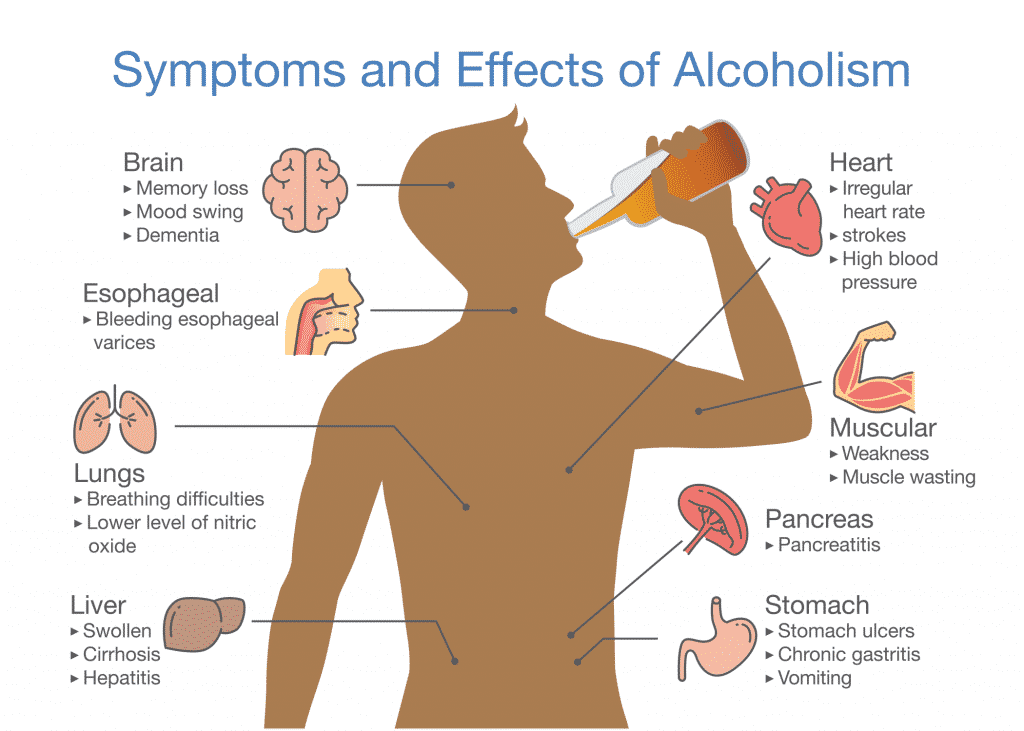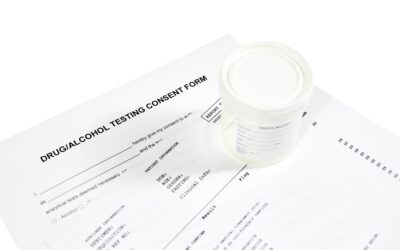Updated 02/02/2022
Many individuals addicted to drugs or alcohol, avoid giving these substances up — because they’re afraid of the withdrawal symptoms associated with detoxing from drugs and alcohol. They may have tried before, but given up as soon as these side effects started to arise. That’s why a professional, medically supervised detoxification program is so crucial. It ensures these substances are cleaned out of your system in a safe environment. No matter what substance you are addicted to, our team has massive experience and vast medical background to ensure your detox is as safe and comfortable as possible. We at CNV Detox and Rehab in Los Angeles, California provide 24-hour-a-day monitoring so that if any issues arise, you have a qualified team on hand to help. So, what to expect when detoxing from alcohol?
If you need FREE help please contact the National Helpline about mental and/or substance use disorders, prevention, treatment, and recovery in English and Spanish.
What Is Alcohol Detoxification?
Detoxification, or detox, is the process of letting the body remove the drugs and substances in it. The purpose of detox is to safely manage withdrawal symptoms when someone stops taking drugs or alcohol. Everyone has a different experience with detox. The type of drug and how long it was used affect what detox will be like. Medications used in detox help keep former users comfortable while the drugs leave their bodies. It can take days or weeks to get through withdrawal symptoms for most drugs. The length of withdrawal depends on a number of factors, including:
- Type of substance the user is addicted to
- Duration an addiction has lasted
- The severity of the addiction
- Method of abuse (snorting, smoking, injecting, or swallowing)
- The amount of a substance the user takes at one time
- Family history
- Genetic makeup
- Medical condition
- Underlying mental health conditions
[aigpl-gallery-slider id=”934″]
What About Detoxing From Alcohol At Home?
Whether you’re addicted to alcohol, it’s dangerous to attempt to detox on your own. Not only is there a higher chance of relapsing back into substance use, but there are also health risks associated with detoxing without medical supervision. Some withdrawal symptoms are so severe that they can damage your health or even cause death if not addressed immediately. Quitting “cold turkey” or without medical supervision can lead to serious issues such as seizures and severe dehydration. People with severe addictions should seek inpatient detox because withdrawal can be fatal. Inpatient detox includes 24-hour support and monitoring.
If you’re ready to kick your addiction to drugs or alcohol, then it’s time to contact our team at CNV Detox. Our luxurious facilities located in California ensure your detox is done in the safety and seclusion of our luxurious surroundings.

What To Expect When Detoxing From Alcohol?
Depending on what substance you are addicted to and other individual factors, each detox experience is slightly different. However, here is an overview of what to expect:
1. Patient Evaluation
During your stay at CNV Detox in Los Angeles, California, an evaluation of your condition will be performed. Not only does this help us determine your level of addiction, but it’s also useful in determining if you have a co-occurring disorder. We specialize in dual diagnosis treatments, which is when a patient has both an addiction and an underlying mental health disorder. Once we understand all these factors, we can create a personal treatment plan that fits your needs. We also ensure it addresses all areas of concern, whether it be a single addiction, addictions to multiple substances, or the additional treatment of psychiatric symptoms.
2. Treatment Tailor Made for Each Patient
There is no solution that fits all. This is why an individualized plan is so essential to our patients. We begin the detox process by understanding as many factors about your condition as possible so that you can get the best care. The first step of detoxification is the withdrawal process. WE need to make sure all substances work their way out of your system. In some cases, we may provide medication to ease these side effects. No matter what, our compassionate staff is on hand 24-hours a day to monitor your progress and offer support. Depending on what substances you use and your level of addiction, the withdrawal process could last anywhere from a few days to a few weeks. But during that time, we will make you as comfortable as possible.
Each guest is provided with their own private or semi-private room. We encourage our patients to attend therapy sessions so that we can help them identify problem areas that need to be addressed during the recovery process.
3. Post-Detox Treatment
Detox is just the first step to successful rehabilitation from drug and alcohol addiction. To ensure our patients remain strong in their sobriety, we encourage them to seek out further post-detox treatment: inpatient or outpatient rehab, PHP, IOP, and sober living. These types of programs are designed to identify the stressors that led to addiction and also to teach you the skills to cope with issues when they arise.
Alcohol Detox Programs
The average duration of detox at CNV detox is usually between 5 to 14 days, depending on your individual need and substance abuse. We offer treatment options for:
- Alcohol detoxification: Withdrawal symptoms of alcohol abuse can be challenging if not life-threatening. Severe alcohol withdrawal reactions include extreme confusion, severe alcohol cravings, fever, hallucinations and seizures. Our treatment goals aim to address these symptoms, prevent current or future health issues and address abstinence. How long it may take you to detox from alcohol depends on the length of your addiction. Often, treatment extends beyond several days- if patient’s condition is severe. Although extreme symptoms subside after just several days days, some patients may still experience some symptoms seven to ten days after their last drink.
- Opiate detoxification: Patients detoxing from opiates usually go through two phases of withdrawal. The first set of symptoms include excessive tearing, cramping, paranoia, anxiety, body aches, sweating, yawning and insomnia. Later withdrawal symptoms include rapid pulse, nausea, diarrhea, abdominal cramping, goosebumps, rapid pulse and increased blood pressure. Symptoms from short-acting opiates such as heroin usually begin showing within 12 hours of last use. Longer-acting drugs like methadone result in withdrawal symptoms starting just 30 minutes after previous exposure.
- Benzodiazepine detoxification: Seizures are one of the most dangerous symptoms of benzodiazepine withdrawal and could be deadly without proper supervision. Other symptoms include insomnia, anxiety, irritability, headaches, sensory distortions, heart palpitations, psychosis, tremors, hallucinations, nausea and dry retching. Recovering from benzodiazepine addiction is a process, so we offer emotional as well as medical support. Without medical supervision, attempting to detox from benzodiazepine can be life-threatening.
- Stimulant detoxification: This process is usually not life-threatening. Symptoms vary from patient to patient and are based on factors such as tolerance and metabolism. When detoxing from stimulants, withdrawal symptoms appear within a couple of hours to a couple of days after last use. More severe psychological symptoms can last up to a few weeks or months after quitting.
- Marijuana detoxification: Marijuana withdrawal is not typically life-threatening. Symptoms usually begin 24 hours after last use and can last up to two weeks. Symptoms of marijuana withdrawal include fear, anxiety, irritability, restlessness, poor appetite, poor sleep and more.
- Heroin detoxification: Heroin is an opiate. Therefore, symptoms and recovery times are identical to those of opiate detoxification. Patients detoxing from opiates usually go through two phases of withdrawal. The first set of symptoms include excessive tearing, cramping, paranoia, anxiety, body aches, sweating, yawning and insomnia. Later withdrawal symptoms include rapid pulse, nausea, diarrhea, abdominal cramping, goosebumps, rapid pulse and increased blood pressure. Symptoms from short-acting opiates such as heroin usually begin showing within 12 hours of last use. Longer-acting drugs like methadone result in withdrawal symptoms starting just 30 minutes after previous exposure.
Why Is Alcohol Detox Important?
Alcohol detox is the first step on your journey to sobriety. However, some withdrawal symptoms can be dangerous or even fatal. At CNV Detox, our medical team, monitor the progress of our clients at all times. While we offer private and semi-private rooms, time for meditation and relaxation, our health practitioners consistently monitor clients to ensure safety during the detoxification process. Detoxing from drugs and alcohol at home may pose serious health risks due to the severity of symptoms.

Get Professional Help at CNV Detox & Rehab in Los Angeles.
CNV Detox provides drug & alcohol detoxification and residential rehabilitation in Los Angeles, California. CNV Detox is an accredited and licensed facility offering medically supervised detox programs. Our dual diagnosis program provides a multi-faceted family approach that simultaneously treats addiction and mental health for a full recovery. No matter what substance you are addicted to, our team has tremendous experience and vast medical background to ensure your detox is as safe and comfortable as possible. In addition, we provide 24-hour monitoring so that if any issues arise, you have a qualified team on hand to help. So, what to expect when detoxing from drugs and alcohol?
We treat substance use disorders through a combination of medication and therapy. Medication is initially used to ease the patient from the physical pain and anxiety of detoxification when needed. Once the patient is relatively comfortable, an individualized treatment plan is created. Patients play an active role in developing their treatment plans. No one’s addiction experience is the same, therefore their treatment must also be tailored.
At CNV Detox, all calls, live chat sessions, and information provided via contact forms are strictly confidential! Contact Us Today!
[aigpl-gallery-slider id=”2032″]





